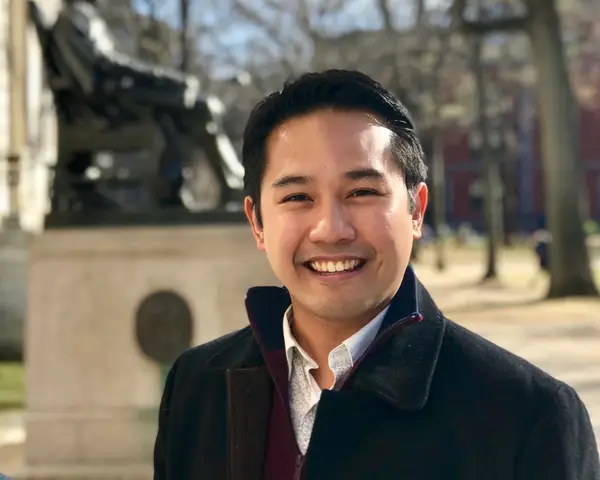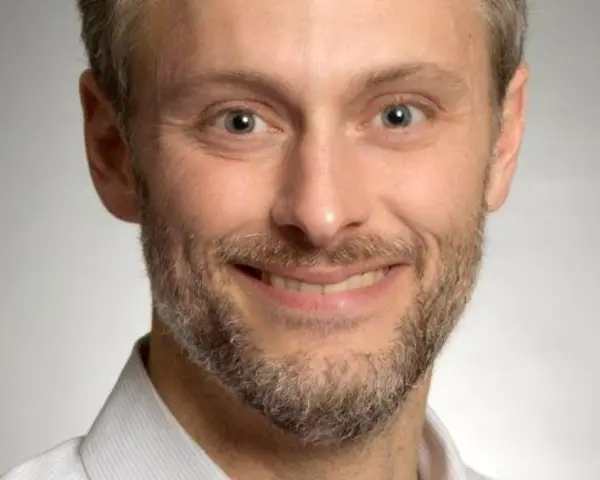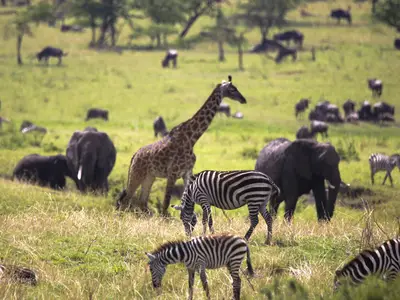Learning and Adapting during COVID-19 Series | Webinar 3: Can a Planetary Health Lens Inform Pandemic Response?
Date
The COVID-19 pandemic has upended traditional thinking about global health, and highlighted linkages between environmental health, biodiversity conservation, and human health. The emerging field of planetary health provides a valuable lens for governments and international development practitioners to consider new multi-faceted approaches to mitigating the threat that COVID-19 poses in the short and long term.
Born out of growing recognition of the impacts of global environmental change on human health, planetary health is an emerging field of scientific inquiry and a dynamic community of researchers and advocates dedicated to improving the health of people and the planet. By better understanding how breaching environmental limits can contribute to infectious disease outbreaks, we can begin reforming the political and economic forces that lead to poor public health and environmental outcomes, build resilience to future pandemics, and strengthen global health security.
This webinar will introduce the nascent field of planetary health, examine its links with COVID-19 and other contemporary health challenges, and explore how it can contribute to international development policy and implementation.
View more from the "Learning and Adapting during COVID-19" series.
Learn more about RTI's global health and environment work.
Watch the Webinar
Hear from our panelists below. You can also download the presentation:
- Renzo Guinto: Can a Planetary Health Lens Inform Pandemic Response?

Renzo Guinto, MD, DrPH, Chief Planetary Doctor, PH Lab
Renzo Guinto, MD DrPH is Chief Planetary Doctor of PH Lab – a “glo-cal think-and-do tank” for advancing the health of both people and the planet. An Obama Foundation Asia-Pacific Leader and Aspen Institute New Voices Fellow, Renzo received his Doctor of Public Health degree from Harvard University; for his doctoral dissertation, he investigated the concept of “climate-smart” health systems in coastal municipalities in the Philippines. Renzo is member of the Editorial Advisory Board of The Lancet Planetary Health; adviser to the Forum on Climate Change and Health of the World Innovation Summit for Health; and Next Generation One Health Adviser of the Lancet One Health Commission hosted by the University of Oslo. He previously consulted for various organizations including the Institute of Tropical Medicine in Antwerp, Belgium; World Bank; World Health Organization; Health Care Without Harm; International Organization for Migration; Philippine Department of Health, and University of the Philippines Manila. Renzo has traveled to and lectured in nearly 50 countries; published more than 100 articles in scientific journals, books, and popular media; and directed and produced short films that communicate the message of planetary healing to the world.

Katherine Wachala, Biodiversity Conservation and Natural Resource Management Specialist, RTI International
Katherine (Kathy) Wachala is an international environmental development professional specializing in biodiversity conservation and countering wildlife trafficking (CWT). In her current role at RTI, Kathy manages two U.S. Agency for International Development (USAID) programs with CWT efforts: USAID Wildlife Asia, a regional program based in Bangkok that works throughout southeast Asia; and USAID PROTECT, focusing on conservation efforts throughout Tanzania through public-private partnerships. As the supply for wildlife comes from Africa and the demand is in Asia, Kathy and both project teams have worked to fortify the link between these two continents as USAID and other donors are looking to improve their approach for transcontinental work. Kathy joined RTI in late 2017 from the Smithsonian Institution, where she was Deputy Chief of Party for the USAID Bengal Tiger Conservation Activity based in Bangladesh. She has worked in more than 30 countries throughout sub-Saharan Africa, southern and southeast Asia, and the Middle East.

Taylor Williamson, Health Systems Manager, RTI International
Taylor Williamson is responsible for programming, strategies, and research to strengthen health systems, with a focus on public management, accountability, sustainability, and human rights. He has 15 years of experience designing and implementing health systems programs, with attention to how health system reforms affect family planning, maternal health, neglected tropical disease, and HIV services. As a project manager and health governance technical lead for three centrally-funded USAID health system strengthening projects (Health Systems 20/20, the Health Policy Project, and the Health Policy Plus Project), he provided technical direction and leadership for health governance challenges, including country programs to improve access to justice for people living with HIV and key populations, strengthen health sector decentralization, and assess health systems. He previously worked in Rwanda, where he managed CHF International’s (now Global Communities) capacity development portfolio, working with civil society organizations to improve their strategic planning, program management, and advocacy skills. He has published several manuscripts and working papers on civil society, decentralization, human rights, and social accountability.
